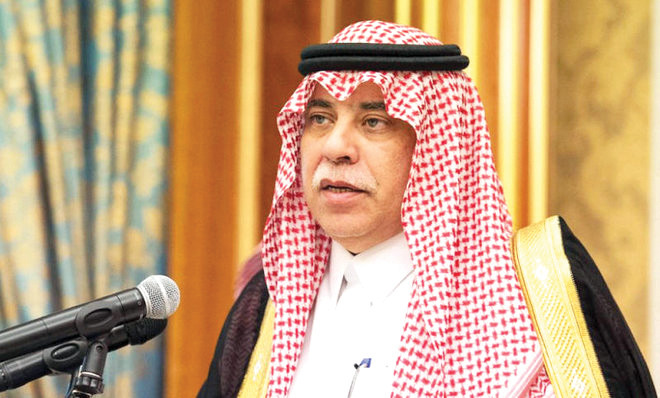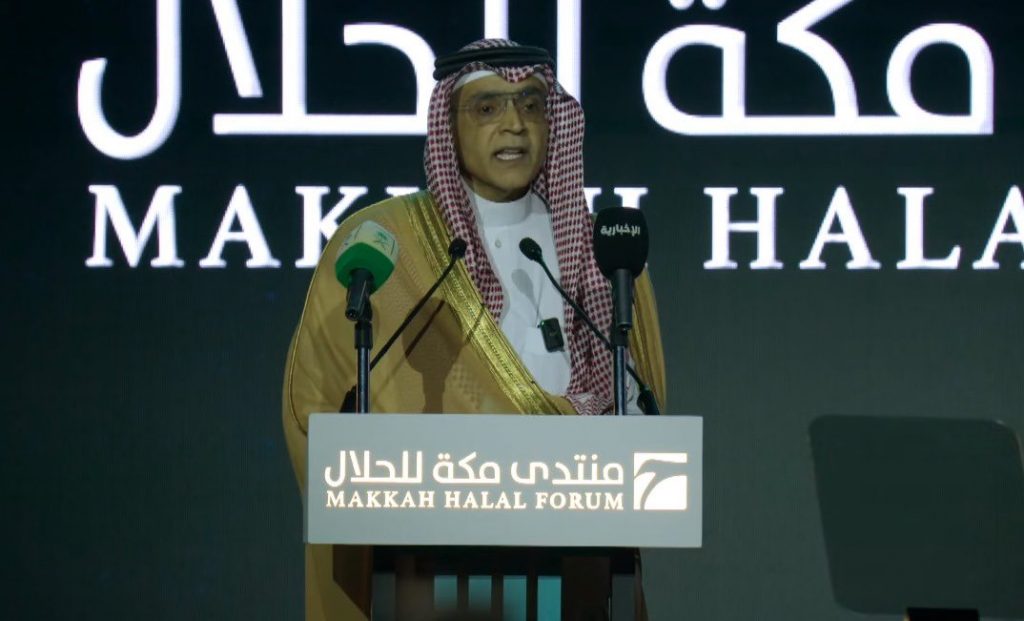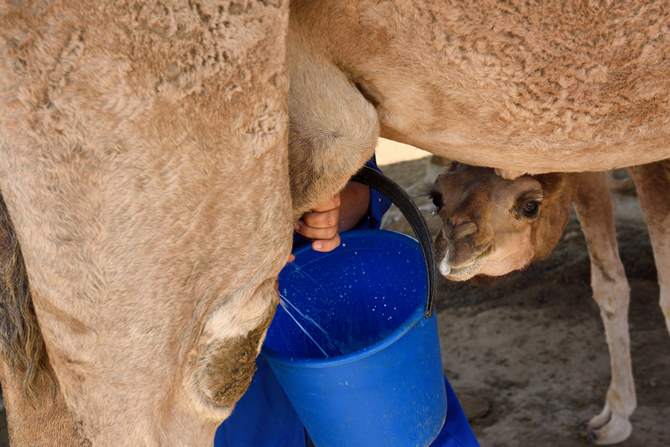Fawaz bin Talal Al-Harbi, chairman of HPDC, underscored the rising global interest in halal products and services, with anticipated consumer spending reaching $5 trillion in the coming years.
He added that research indicates the Kingdom is among the leading importers of halal industries and products.
“Furthermore, Saudi Arabia is also the largest exporting nation of halal products to non-Muslim countries, generating great opportunities in the halal industry in the Kingdom,” said Al-Harbi, providing an example of the establishment of HPDC.
Fawaz bin Talal Al-Harbi, chairman of HPDC emphasized that the forum aims to empower the promising halal sector by engaging the private sector, regulators, and legislative authorities to leverage the numerous opportunities in this field.
The objective is to unlock promising horizons for young people, foster the exchange of views, share expertise and experiences, and introduce the latest practices for the sector’s development.

Amid varying reports on the global scale of the halal market, Yousuf Khalawi, secretary-general of the Islamic Chamber of Commerce and Development, indicated that the market for halal food and beverages is estimated to range between $2.2 to $2.8 trillion, experiencing an average growth rate of around 15 percent.
In an interview with Arab News, Khalawi expressed his belief that the statistics released by consulting firms are not accurate.
“I can give you just an example (to illustrate) why. The whole production of Saudi Arabia is considered halal, but it is not classified as Islam-compliant food simply because most of Saudi products are not stamped with ‘Halal’ or have certifications showing they are halal,” he explained.
He added that everyone knows that all Saudi products are halal, saying: “Major Muslim countries’ productions, like Saudi Arabia, Turkiye, Indonesia, Malaysia, are halal, even if it is (not) printed on the product.”
Halal standards
The secretary-general emphasized the significance of halal products carrying a certified tag, a designation that would be granted based on specific criteria to ensure Shariah compliance.
“If you want to get anything certified, this means you need standards. So, till now most Muslim countries do not have an official standardization. So, anyone can create a halal certificate and give it to any production company,” he told Arab News.
With well-established countries like Saudi Arabia, he added, products lacking Shariah-compliant certification are not allowed.
“This will upgrade the standard of standardization around the world. So, we are very happy with countries that have detailed specifications for halal such as the UAE, Turkiye, Malaysia, Comoros and more. This will improve the whole halal (industry) and will make it a professional industry,” Khalawi said.
He strongly believes that as more countries prioritize this issue, the halal industry will continue to improve as “huge developments (are) still needed in the halal (world) to be a professional industry.”

Six deals signed
The forum witnessed the signing of six deals aimed at enhancing collaboration among the involved parties, marking the inauguration of a new phase for the halal industry and laying the foundation for future accomplishments in this sector.
The agreements comprised a memorandum of understanding between the HPDC. and Sinad Holding Co. Another MoU was inked between HPDC and the Islamic Chamber of Commerce and Development.
A third agreement between Manafae and the Federation of Pakistan Chambers of Commerce and Industry was signed, and the fourth deal was between Manafae and the Federation of Saudi Chambers.
Additionally, an agreement was reached between the Islamic Chamber Halal Services Co. and the Indonesian Chamber of Commerce and Industry.
The sixth MOU was signed between the Ministry of Agriculture, Fisheries, and Environment of Comoros and the Holding Co. of the Islamic Chamber of Commerce and Development.
Kamel of the Islamic Chamber of Commerce and Development underscored the profound spiritual significance of Makkah for Muslims worldwide. Additionally, he highlighted the city’s role as the forum venue, emphasizing its purpose for the collective well-being of the Muslim community.
Kamel, who also serves as the chairman of the board of directors of the Makkah Chamber of Commerce, pointed out that the forum is one of the activities stemming from the Manafea Agreement.
The tripartite agreement between the Chamber of Commerce of Makkah, the Chamber of Commerce of Madinah, and the Islamic Chamber of Commerce, Industry, and Agriculture is designed to transform the two cities into hubs for business events and an investment center, ultimately benefiting Muslims globally.




